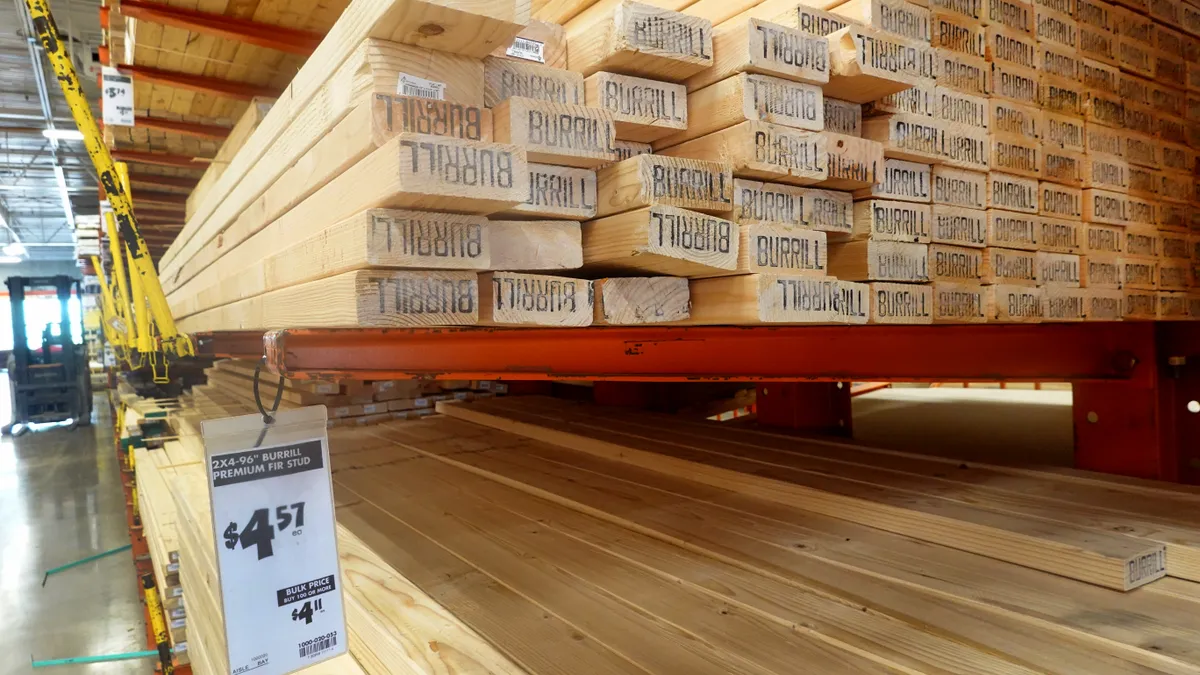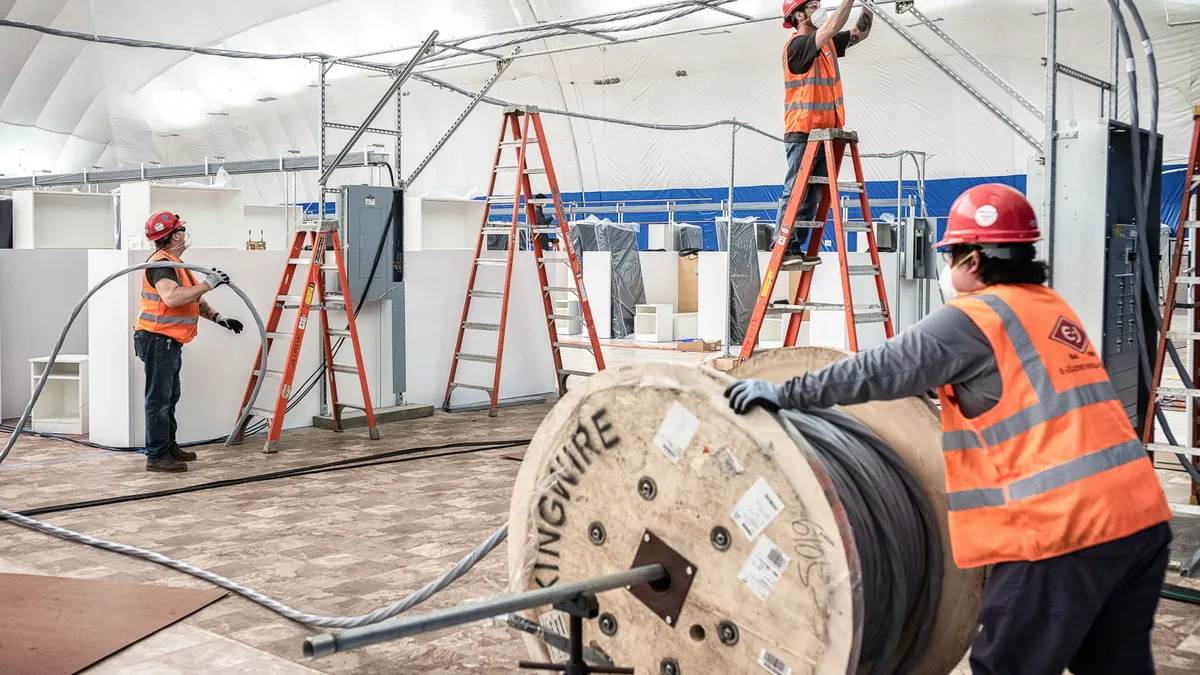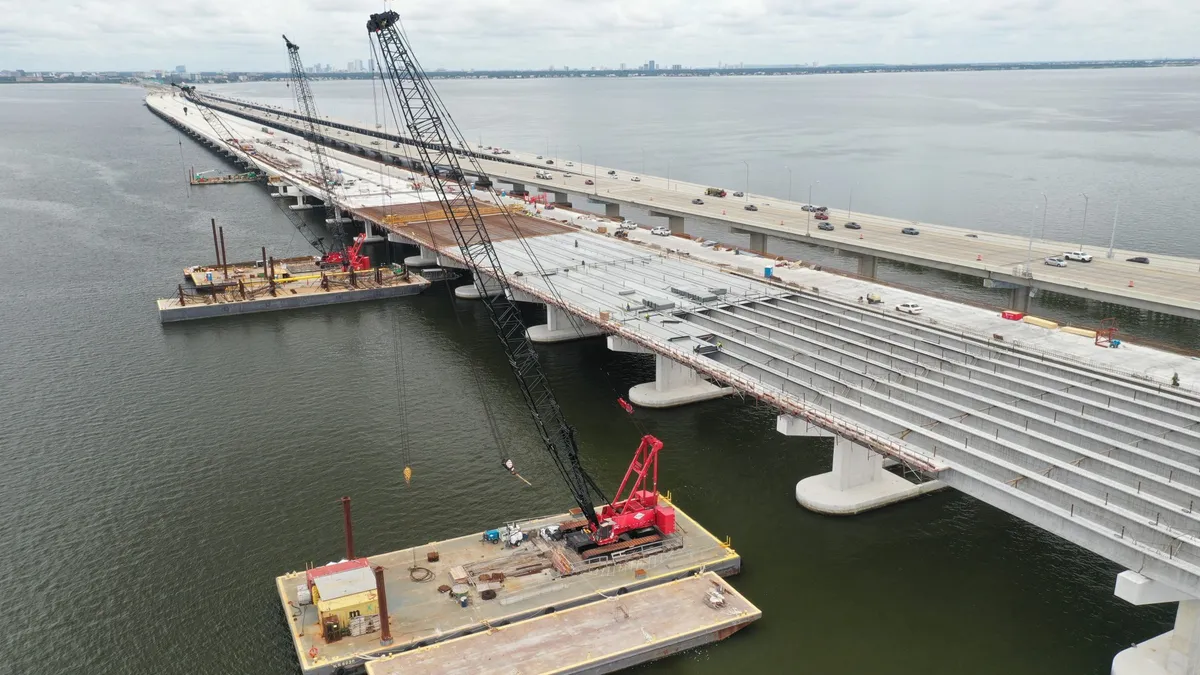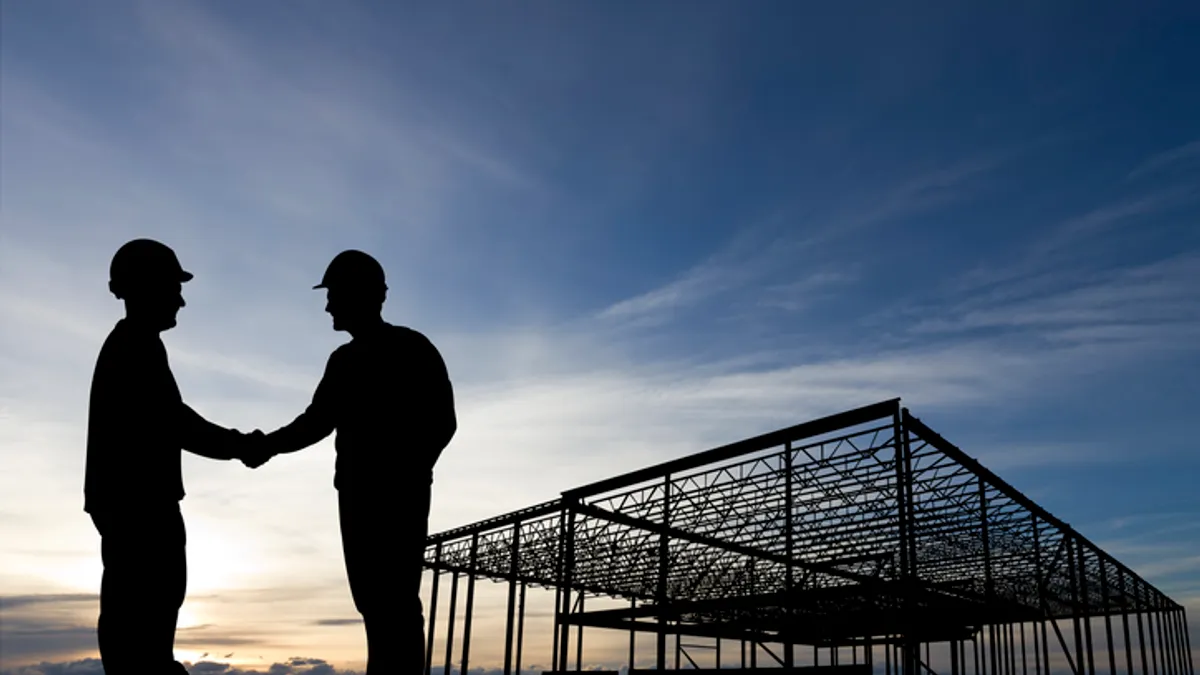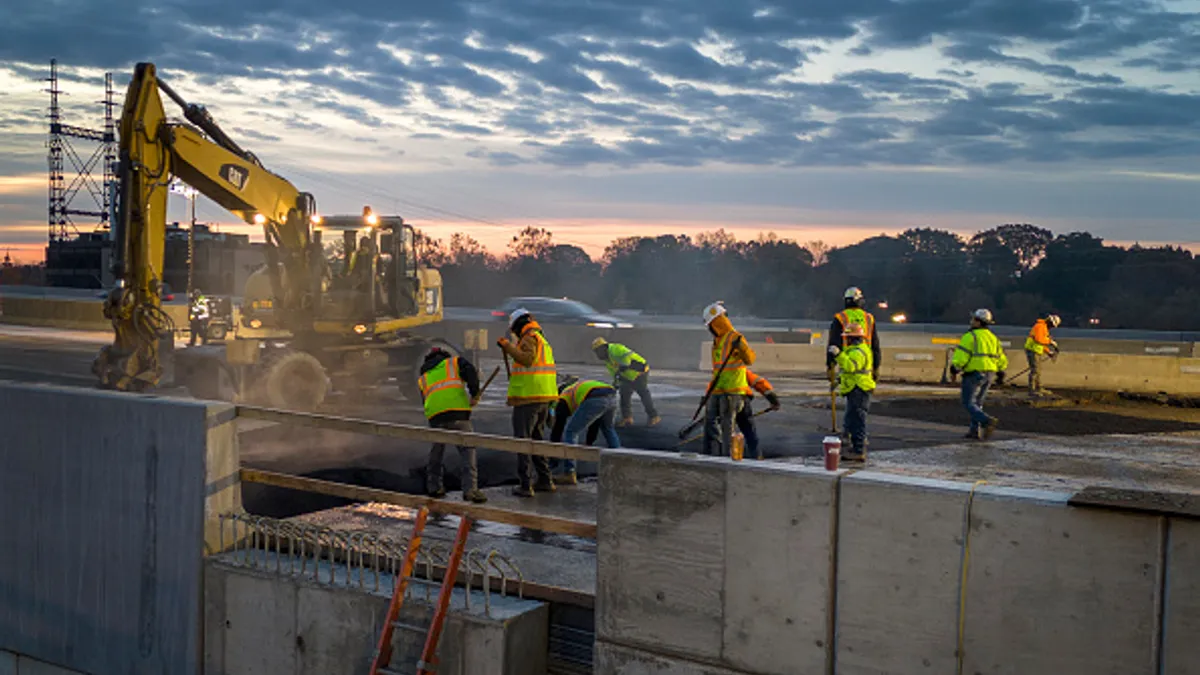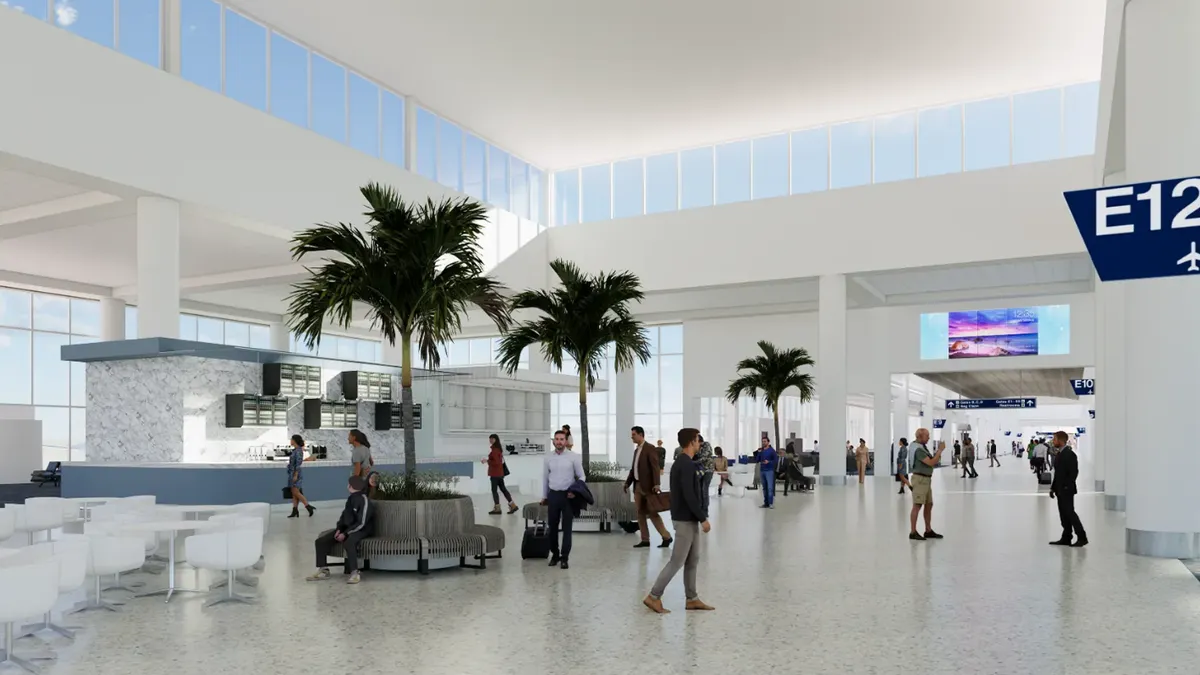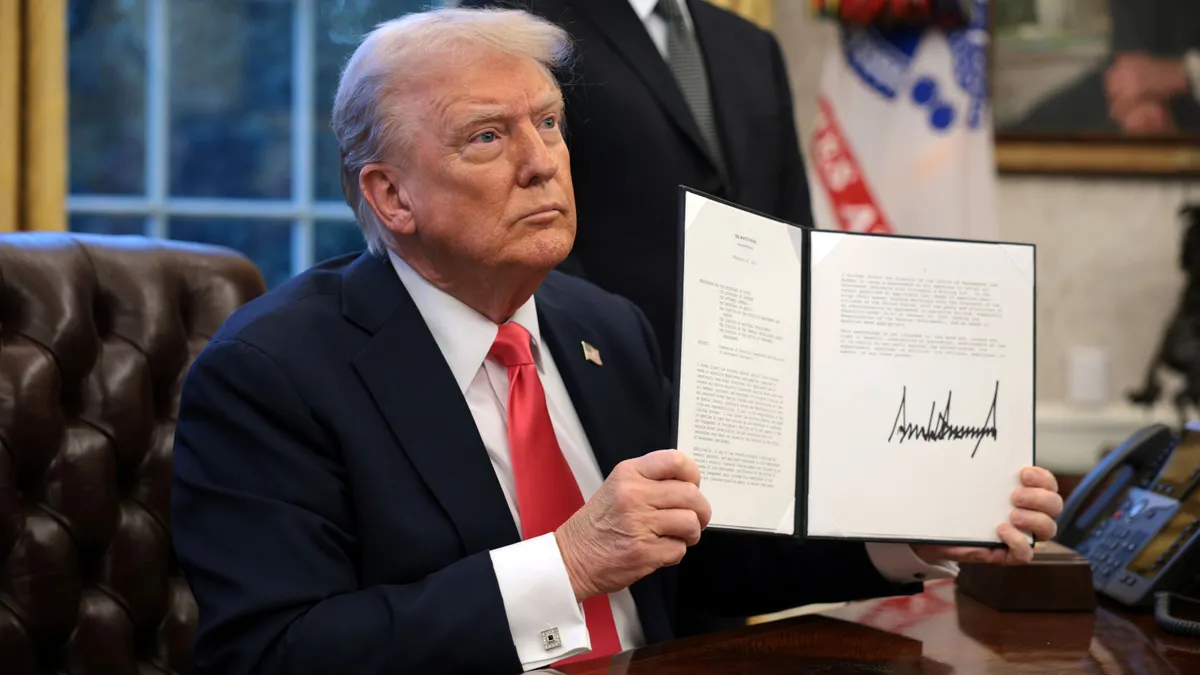Former President Joe Biden strengthened the federal government’s procurement policy to encourage domestic manufacturing, and even as President Donald Trump seeks to unwind much of his predecessor’s legacy, this looks to be an area of alignment. That means civil builders must prepare for heightened domestic procurement requirements stemming from both parties.
There was a marked increase of Buy American requirements during the previous Trump administration that continued under Biden, per a Nov. 11, 2024, alert authored by Eric Crusius, partner at Tampa, Florida-based law firm Holland and Knight.
“Contractors should expect that trend will continue, perhaps even further than the current trajectory,” according to Crusius’ alert.
Biden bolstered the existing Buy America requirements for federally financed infrastructure projects via the Infrastructure Investment and Jobs Act. The Build America, Buy America provision of the IIJA requires that the iron, steel, many construction materials and manufactured products used in federally funded infrastructure projects be domestically produced.
The Trump administration has temporarily frozen IIJA funding and subsequently ignored court orders to release it, according to The New York Times. However, that does not negate BABA — such a move would require an act of Congress, Jason Walsh, executive director of the BlueGreen Alliance, a partnership between union and environmental groups, said in a Jan. 23 webinar. The organization supports the policy and has released a BABA user guide.
“BABA was authorized by a supermajority in Congress and it has strong bipartisan support, and we’ve seen no indication from the new administration that it would be unsupportive,” Walsh said.
Meanwhile, Trump issued at least three Buy American executive orders during his first term, including his 2017 Buy American and Hire American order, which aimed to protect U.S. workers and promote job growth. He also campaigned on renewing domestic manufacturing and looks poised to continue and expand American-made mandates.
Trump and Buy America
Though Trump has not spoken about BABA specifically, he said he wants to reform America’s current trade agreements to favor U.S. manufacturing.
To that end, Trump issued the America First Trade Policy executive order on Jan. 20. Among other things, it directs the U.S. Trade Representative to review the impact of trade agreements on the volume of federal procurement covered by Buy American and Hire American — though Biden revoked that order with his own domestic procurement policy — and to make recommendations to ensure that such agreements are being implemented in a way that favors U.S. workers and manufacturers.
The president has ordered tariffs directed at Canada, Mexico and China — though he subsequently paused those for the U.S.’ neighbors — and on Feb. 11 implemented additional 25% tariffs on all steel and aluminum imports. He also signed an executive order Feb. 13 enacting reciprocal tariffs for all current and potential trading partners. However, those tariffs could harm the U.S. building industry, according to a Feb. 12 news release from Fairfax, Virginia-based National Utility Contractors Association.
“NUCA urges the Trump Administration to reconsider the pending tariffs on steel and aluminum, at least with regards to materials used in domestic infrastructure projects. America’s construction industry already supports through practice and ‘Buy America’ regulations the use of American-manufactured products,” according to NUCA’s release.
There are additional ways that the president could use federal procurement policy to advance his agenda.
The Trump administration could further increase the required percentages of domestic content for supplies and construction materials, or further limit the availability of BAA waivers, said Vinson & Elkins legal experts in a Dec. 5 blog post. He could also leverage trade agreements.
“[Trump] could attempt to further strengthen and expand the reach of the BAA by limiting exemptions for products manufactured in countries that have entered into free trade agreements with the United States that require nondiscriminatory treatment in government procurement,” according to Vinson & Elkins’ post.
The president could also add new procurement regulations and federal acquisition clauses limiting opportunities for contractors that employ workers overseas or that rely on foreign subcontractors or suppliers, according to Vinson & Elkins experts.
Biden ends key FHWA waiver
While Buy America has ostensibly applied for decades, the Federal Highway Administration has waived the requirement since 1983 under the rationale that certifying the origin of many products would be too costly. However, the IIJA requires federal agencies to periodically review these types of waivers, and FHWA decided to end the deferral right before Biden left office.
Industry groups such as the American Road and Transportation Builders Association warned that ending the long-standing deferral could increase project costs and delays. However, Trump is not expected to reverse the move, per ARTBA.
Under the revised rule, manufactured products will need to be assembled in the United States, and more than 55% of their components by cost must be made in the U.S., according to FHWA. The agency plans to phase in these requirements: The first requirement applies to federal aid projects obligated on or after Oct. 1, 2025, and the second will begin on Oct. 1, 2026.
There are various resources to help contractors locate compliant materials.
San Francisco-based climate tech company Ecomedes’ SFTools enables contractors to locate Buy American-compliant building materials using the disclosures and transparencies tab. It pulls from the General Services Administration’s Green Procurement Compilation resource, which helps buyers working for federal agencies find sustainable materials and other items. BlueGreen Alliance’s Building Clean tool can also locate materials covered under BABA.



